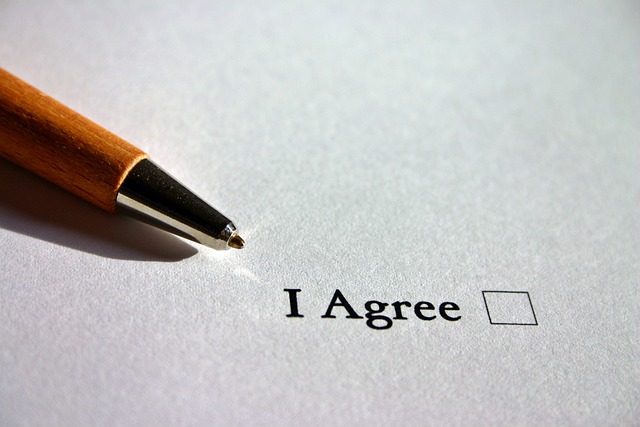
Crypto Craze Gone Too Far? The Memecoin Boom
January 27, 2025
Commercial Awareness Update – W/C 3rd February 2025
February 3, 2025Article by Sydney Kowalczyk
Bullied or bought into silence?
Imagine getting a job as an assistant for a globally acclaimed, hyper-successful film producer. Before you even meet him, your colleagues take it upon themselves to warn you that your celebrated boss is internally known for his extreme temper and pervertedness. You keep this in mind as you sit in on his meetings with famous Hollywood stars, when asked for your opinion on scripts and when invited to accompany him to festivals abroad. You feel valued and part of the club; you remind yourself of this every time you fall victim to his sexual harassment.
There is a lot of work, so a new colleague joins to help you out. She is young and your responsibility. One evening, you look up, and there she is, pale-faced and out of breath. She tells you that he attempted to rape her. Both distressed, you decide to get lawyers involved.
You want to expose him, but your own lawyers are reluctant to help you. Instead, they explain that it’s just your word against his, there is no evidence, and you would be better off signing a damages agreement. They warn you just how powerful this man – let us call him Harvey Weinstein because that is his name – really is. Disney owns his film company, and he can afford lawyers from Allen & Overy, a ‘magic circle’ firm, who will tear you apart in court. You undergo numerous sessions of negotiations, including one that requires you to stay up all night until 5 am, negotiating the contract with Weinstein’s lawyers. During this time, you are not allowed to speak or go to the toilet unaccompanied; as a final bid for justice, you demand clauses to be inserted into the contract. He must go to therapy, a better HR system must be introduced, and if he does this again, he must get fired… Defeated, you agree to the settlement money in exchange for silence. Hopeless, you sign on the line.
They do not let you keep a copy of the full document you just signed. You feel guilty knowing that this agreement will enable him to continue abusing others; after all, you doubt he will keep up his end of the bargain. You are led to believe you cannot speak about your experience from a therapy chair or a witness box. Your family is distressed since they do not understand why you abruptly left your seemingly perfect job and moved away. You cannot let anyone know, not a soul.
Almost twenty years later, you decide to speak out against what happened, breaking the contract. This leads to other survivors speaking out, and an entire movement emerges: the #MeToo Movement. It has been announced that Weinstein’s lawyers, who drafted the agreement, are being investigated. You learn that this contract was never enforceable in the first place, and now you educate the public about the reality of how non-disclosure agreements are misused.
What are NDAs?
This damages contract that Zelda Perkins signed contained (extreme) confidentiality clauses, making it a non-disclosure agreement (an NDA). NDAs, or more colloquially ‘gagging clauses’, are centred around one party agreeing to keep certain information confidential in exchange for a benefit.
The best way to ensure information is kept confidential is not to share it in the first place. However, sometimes private information must be shared with certain individuals; for example, when a new employee joins a food business, they will need to be told the secret recipe to prepare the food to be sold. Therefore, making them sign an NDA as part of the recruitment process is a valid way of making sure they will not share the secret recipe with others. In this scenario, the consideration in the contract would be agreeing to keep this recipe confidential in exchange for the confidential information (the recipe) itself. This scenario also illustrates that an NDA may not necessarily be a stand-alone document; it could be a clause (a ‘confidentiality clause’) in a wider contract. Here, agreeing to keep the recipe a secret would be the confidentiality clause of a broader employment contract.
Likewise, a confidentiality clause could appear in a settlement agreement, often drawn up in employment disputes. When an employee leaves their job due to a dispute at work, signing a settlement agreement could be a way to resolve a claim against their employer. In these cases, the consideration is settlement money in exchange for silence regarding the dispute. Here, the confidentiality clause is used to keep the terms of the agreement (often, the amount paid in settlement) private.
Breaching an NDA could lead to crippling financial consequences; full settlement, the other party’s legal fees, and an additional financial penalty could be demanded to be paid back. Of course, there are other remedies, such as injunctions being granted by the court to prevent further disclosure of the confidential information; if this injunction is ignored, the defendant may be charged with contempt of court (a potentially criminal consequence). If the NDA was part of an employment contract, a breach of the confidentiality clause could result in the employee being terminated from the job.
NDA’s evil twin
So, if a confidentiality clause within a settlement agreement is a standard way of using an NDA, why was Weinstein’s NDA unenforceable?
To be enforceable, an NDA must be reasonable, drafted properly, and not restrict lawful rights. A clearly drafted NDA includes the duration of the agreement (its ‘term’), defines precisely which information is to be kept confidential and outlines the consequences for breach. It should not be ambiguous, convoluted or overly restrictive.
The Solicitors Regulation Authority (SRA) guidance further emphasises that an NDA should not prevent or deter a person from cooperating with a criminal investigation, reporting misconduct to a regulatory body (such as the SRA) or making a protected disclosure under the Public Interest Disclosure Act 1998 (observing safety violations at a construction site and reporting them, for example). The Employment Rights Act 1996 confirms that NDAs cannot be used to prevent whistleblowing (making a ‘protected disclosure’).
Essentially, you can NDA a settlement, but you cannot NDA a crime.
An intimidation tactic
NDAs are often misused in creative ways. For example, a party may be silenced using ‘enforced arbitration’ clauses coupled with ‘arbitration-only’ clauses. These ‘enforced arbitration’ clauses require any complaints (including sexual harassment) to be resolved outside the courtroom, in private arbitration. ‘Arbitration-only’ clauses limit what the silenced party can say about their complaint and the subsequent arbitration.
An intimidation tactic to silence victims – is how NDAs are often described. Many victims are in a psychologically vulnerable position when signing the NDA. At times, there is a significant power imbalance between the parties involved, as illustrated in Zelda Perkins’ case – an assistant going against a globally praised film producer. These aspects could render an NDA to be unenforceable in court. There are many restrictions on what could be included in NDAs, but most people will not be aware of them and will not be inclined to question them when they wrongly appear in an agreement.
NDAs – the latest edition
Currently, employers or settlors lack incentive to amend the law on NDAs; in fact, it works in their favour.
NDAs can offer higher payments than might be awarded at an employment tribunal; employers are not incentivised to settle claims without obtaining a promise of confidentiality in return.
Since 2017, employment tribunal judgements have been published online and are available to be viewed by the public. An unprecedented consequence of this is the increased risk of individuals being blacklisted by future employers. Hence a barrier to discrimination claims being brought by claimants has been created.
Neil Gaiman, an acclaimed British author, recently came under fire for his series of alleged sexual assaults. Tortoise (a news website) further revealed the disgraced author’s misuse of NDAs to silence his alleged victims. It has been reported that he made one victim sign an NDA following the alleged sexual assault in settlement for a sum that would help her cope with her post-traumatic stress and depression stemming from the sexual relationship.
The Higher Education (Freedom of Speech) Act 2023 is to be implemented soon. This law will introduce a complete ban on NDAs being used to silence victims at universities. This is a significant proposal because when this Act was first introduced (it is still not yet in force), a BBC News investigation led to the discovery that nearly a third of universities had used NDAs to resolve student complaints (although the actual value is expected to be higher).
Conclusion
We must disabuse ourselves of the idea that all NDAs are inherently purely exploitive or necessary; the context and clauses agreed upon are what makes them so. A neutral document should not be villainised because doing so would shift the blame away from the bullies. The disreputation of NDAs can be attributed to all the oppressors who negotiate abusive terms and, by extension, to all of our rogue lawyers out there who diligently take it upon themselves to draft clauses which they know are unenforceable.
NDAs are very valuable when used for the purpose they were originally designed – a tool for maintaining trade secrets and preventing intellectual property theft, hence helping businesses maintain a competitive edge. Despite their potential for good, they are increasingly used as an intimidation tactic by wealthy men like Weinstein and Gaiman or powerful institutions like universities; changes and penalties must be introduced to clarify and guard their proper purpose.





